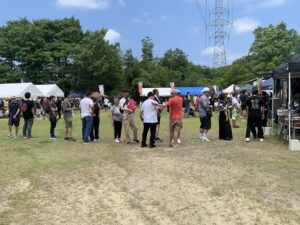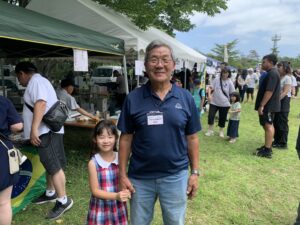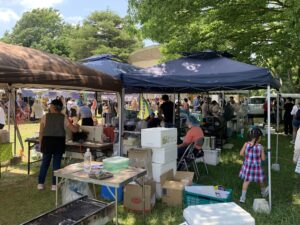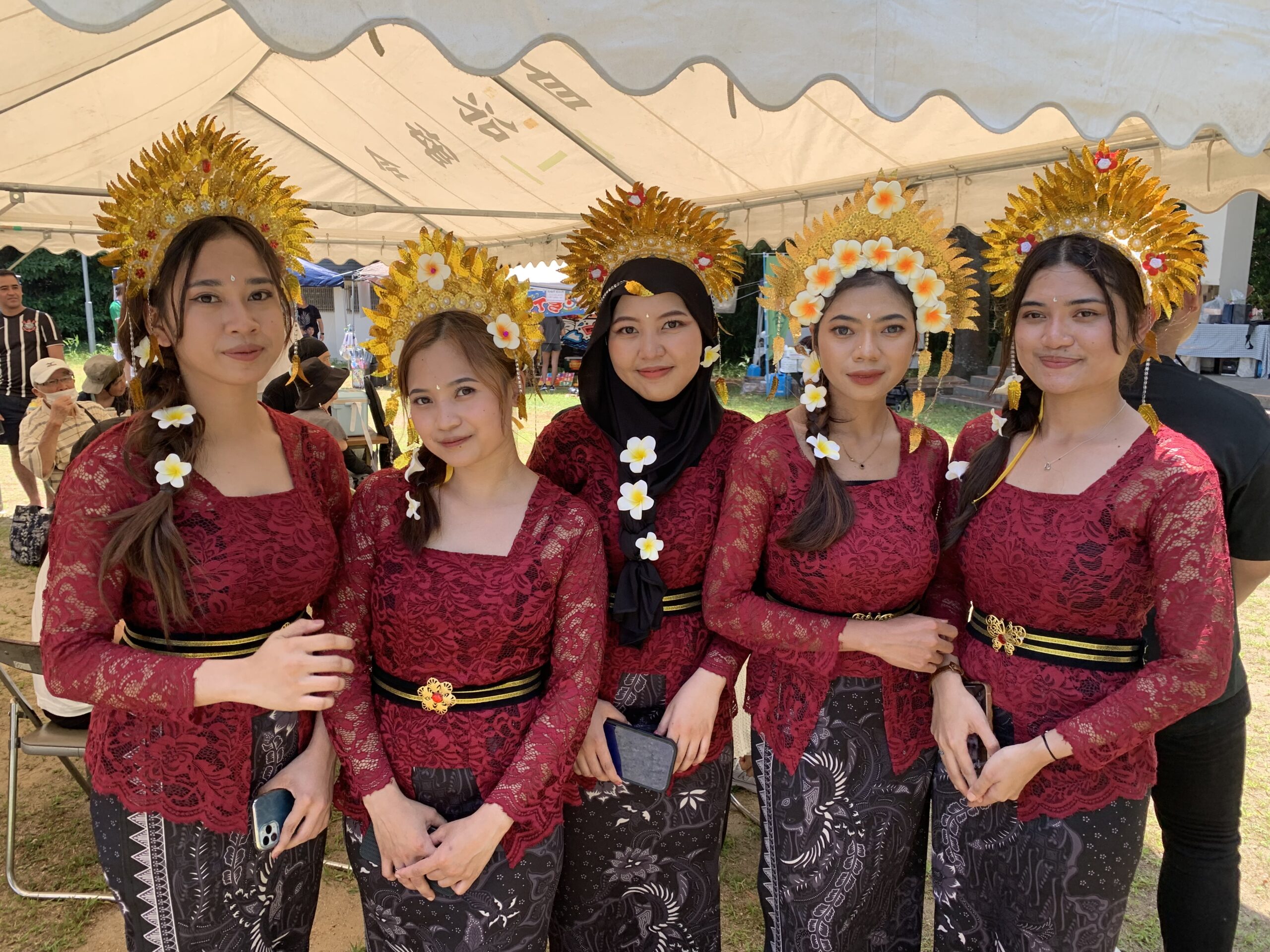Izumo — Under blue summer skies in western Japan, Izumo’s Ichinotani Hill Park burst into colour and music on Saturday, July 12, as locals and foreign residents came together for Festa Junina 2025 — a celebration of multicultural unity inspired by Brazil’s traditional events. The event attracted a diverse crowd, supported by active promotion from local media and the Izumo City Office.
The name Festa Junina originates from Brazilian Portuguese and refers to a traditional celebration marking the June harvest. In Izumo, the festival featured spirited Brazilian music and energetic Indonesian dances, along with a range of festive performances from various cultures — a vibrant embodiment of what Japan calls tabunka kyosei, or multicultural coexistence. Food stalls offered traditional dishes from around the world, giving attendees a nostalgic taste of home.

Renowned as the birthplace of Japanese mythology, Izumo is now increasingly recognised for its efforts to promote intercultural community-building in the San’in region of western Japan. According to the Izumo City Office, the city is home to approximately 5,000 foreign residents — accounting for roughly 3% of the city’s population of 170,000 — many of whom have settled in the area over the past few decades.
Festa Junina 2025 served not only as a showcase of cultural diversity but also as a platform where local residents and foreign nationals could engage with one another. Supporting this event is the backdrop of Izumo City’s long-standing initiatives, such as Japanese language learning programs and consultation services.
Izumo City Office actively promotes multicultural coexistence through various projects. The Izumo Multicultural Plaza, regularly hosted by the office, brings residents together through exhibits, food, and performances, fostering mutual understanding and appreciation among them. The city’s 3rd Multicultural Coexistence Promotion Plan (2025–2030) focuses on improving communication, ensuring a safe living environment, and increasing awareness and participation.
Japanese language classes, supported by volunteers, are available both online and through home visits. Izumo also partners with Shimane Prefecture to provide multilingual consultation services via the Multilingual Consultation Go-en Shimane program, assisting foreign residents with a wide range of daily and legal challenges. Additionally, seminars for Japanese residents help raise cross-cultural awareness and promote harmonious living.
Launched in 2017 as a celebration within the Brazilian community, Festa Junina has since evolved into a broader cultural exchange. This year’s edition was supported by subsidies from Izumo City aimed at deepening ties between Japanese and non-Japanese residents. The city’s financial backing underscores a serious commitment to building genuine intercultural unity and creating a welcoming environment for its diverse population. The event’s overarching goal is to strengthen connections not only among foreign nationals across Japan but also between them and the local Japanese community.
“Some Brazilians find it difficult to communicate with local people,” said event organiser Moriya Juniti Oscar. “I hope Festa Junina helps us build stronger bonds with the Japanese community.”

Moriya Juniti Oscar, Festa Junina 2025 Izumo organizer
Local resident Rika Matsuda suggested greater accessibility could enhance participation. “If multicultural events were held closer to Izumo City Hall, it would be easier for both Japanese and foreign residents to take part. I hope it becomes a regular space for cross-cultural exchange.”
One participant, Dos Santos Luiz Carlos, who runs a steakhouse near Izumo Dorm Baseball Stadium, expressed his affection for the area: “I’ve lived in Komatsu, Takaoka, and Shizuoka, but Izumo is the best. The scenery is beautiful in every season, and you can enjoy both diving and hiking.”
With the recent expansion of Japan’s specified skilled worker visa program, the number of foreign residents in Izumo is expected to grow. “We’re likely to see more international workers coming to Izumo in the future,” said Noriyuki Matsui, an immigration lawyer who supports foreign nationals in employment and entrepreneurship.

The spirit of unity at Festa Junina is further amplified by the active participation of local Japanese volunteers, who dedicate their time and energy to support the event. From planning to emceeing the main stage, their involvement demonstrates a heartwarming, grassroots commitment to welcoming foreign residents. This invaluable volunteerism bridges cultural gaps, turning the festival into a truly collaborative community endeavour.
Beyond fostering cultural ties, Izumo’s commitment to its diverse community is yielding tangible economic benefits. The city is already home to foreign-owned businesses, including popular bento delivery services and restaurants, and local initiatives have seen a noticeable rise in entrepreneurship consultations. As more international workers settle in Izumo, this inclusive environment becomes increasingly crucial for their long-term retention, providing a stable workforce amidst Japan’s demographic shifts and enriching the local economy with new services and innovations.
Festa Junina offered a vivid snapshot of how Izumo’s identity is evolving. From its roots as a mythological birthplace to its emergence as a modern hub of multicultural life, the city is fast becoming a welcoming community for people from around the world.
— Words by Takashi Saito

